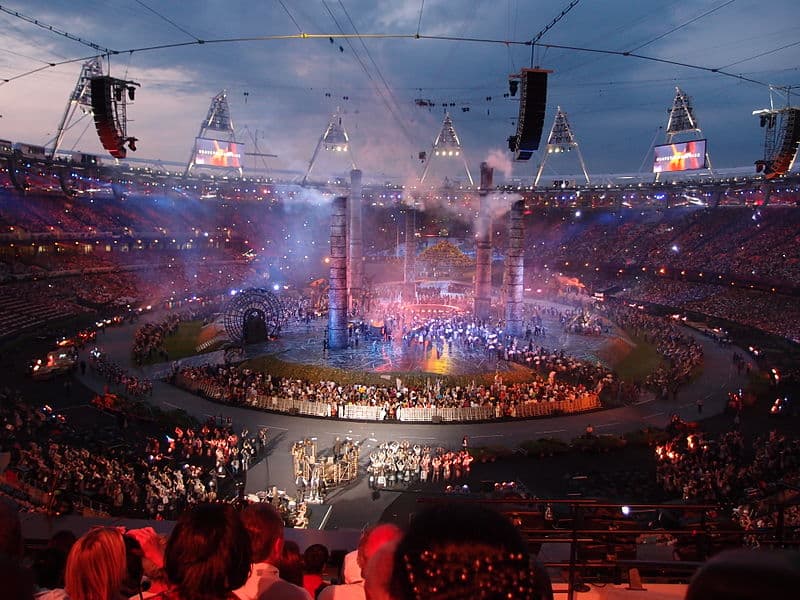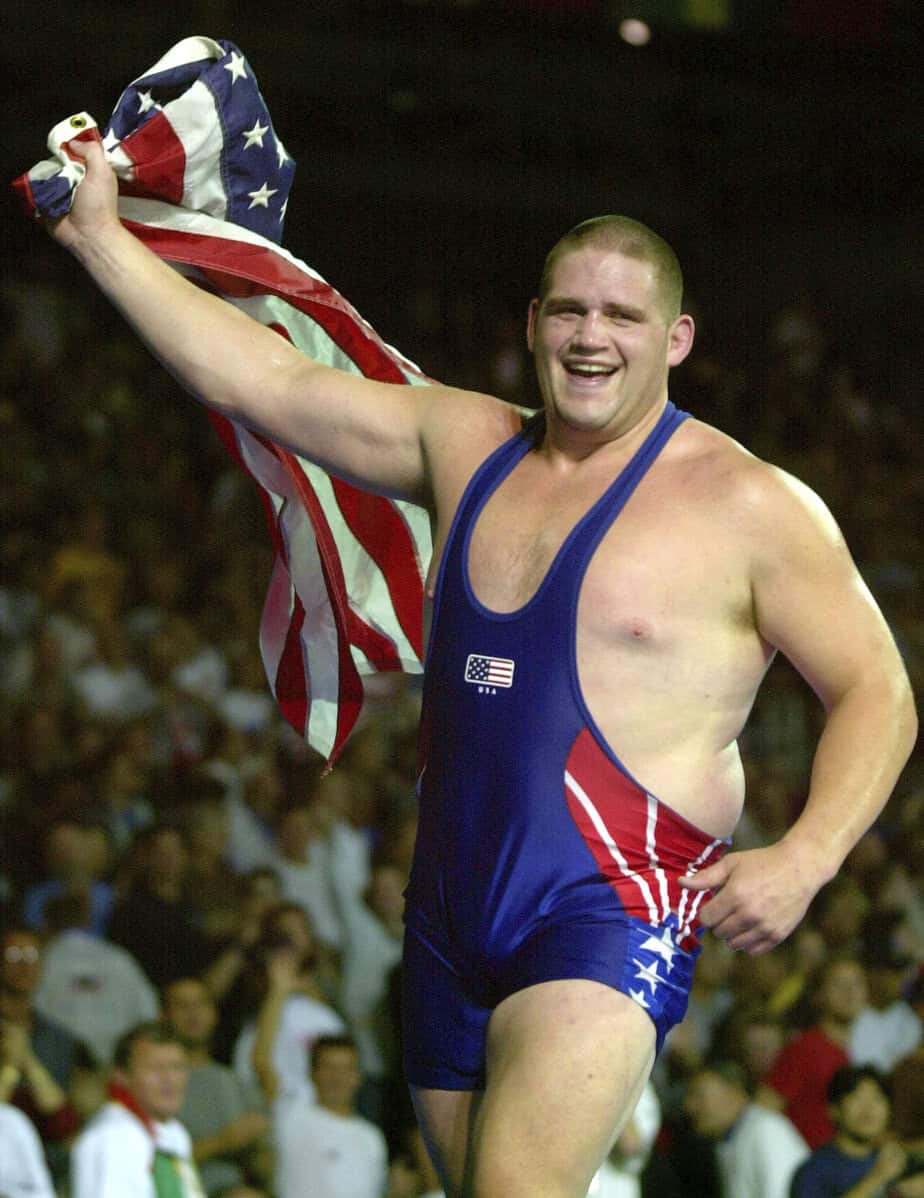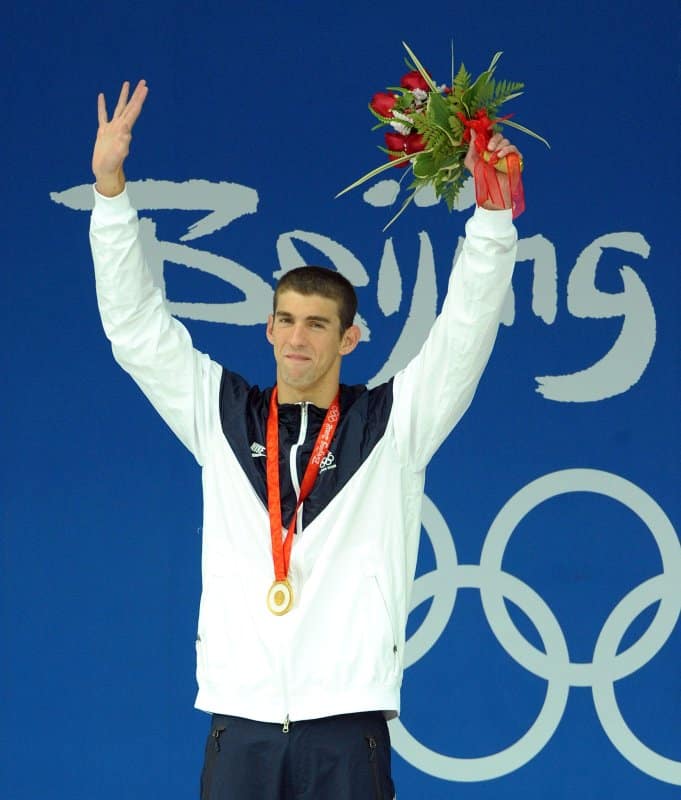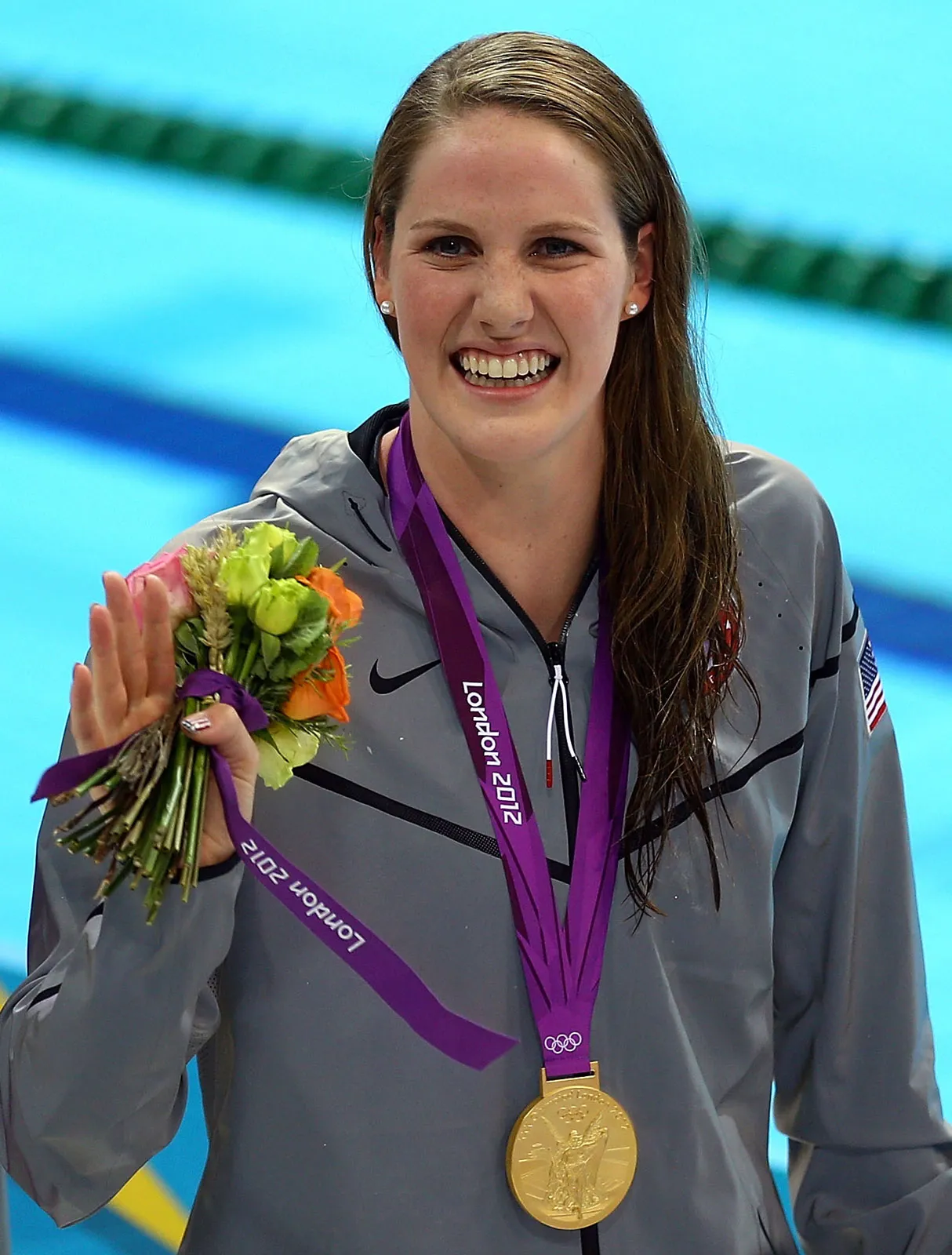Summer Olympics: My memories from Sydney, Beijing, London

There are some things I miss about my old sportswriting job. I loved the travel. However, the Denver Post doesn’t travel nearly as much anymore. I loved our downtown office and going out after work, stumbling distance from bars. The Post has dwindled so much it has moved to its printing plant building on the outskirts of town.
But the biggest thing I miss is telling stories. And the Olympics are full of them. I covered six: three summer and three winter. As a moonlighting travel writer, it was like traveling the world without ever leaving a city. The little-known stories no one knew about until I told them, like the Afghani hairdresser who won a taekwondo medal, his country’s first in the Olympics. The drama unfolding before my eyes like Colorado teen-ager Missy Franklin winning four swimming golds. The fascinating people I met outside the field of play like the Buddhist monk who gave me a lift on the back of his motorcycle to his hilltop monastery in southern China.
With the Paris Olympics opening Friday, I am peeling the cobwebs off my brain and picking the biggest memories of my three Summer Olympics. I’ll do another for my three Winter Olympics when the next one comes to Milan/Cortina in February 2026.

Sydney 2000
I covered swimming in Sydney. It had a 16-hour time difference with my deadline in Denver and it made me a workaholic. I worked from the prelims in the morning to the end of my last story off the finals at about 2 a.m. I still beat home my ne’er do well high school classmate who crashed in my room and partied every night.
But covering swimming in Australia is like covering the NFL in the U.S. With the strong U.S. team in town, this was a historic rivalry played out before one of the wildest crowds in all the Olympics. That was my biggest memory.
Australian swim fans. They packed 10,000-seat Sydney Olympic Park Aquatic Center every day and night, dressed in green and gold. They came dressed as kangaroos. They came carrying stuffed koalas. Every time an Aussie set foot on the starting blocks, the entire stadium filled with “AUSSIE! AUSSIE! AUSSIE! OI! OI! OI!”
Ian Thorpe’s five gold medals. At 17, he became Australia’s new sports hero. The “Thorpedo” wowed the crowd and beat back the U.S. wave. His oversized feet were photographed more than all the bikini babes on nearby Bondi Beach.
Eric the Eel: Eric Moussabani had never seen a 50-meter pool, let alone swam in one, until he was Equatorial Guinea’s Olympic wildcard swimming entry for developing countries. When I interviewed him, he said he didn’t know how to swim until eight months before the Olympics when he learned in a lake. His time of 1:51.72 was more than a minute slower than the gold medal time of 48.30.
Rulon Gardner’s wrestling gold: Greco-Roman heavyweight Alexander Karelin came to Sydney as the three-time defending Olympic champion who hadn‘t give up a point in 10 years. Gardner was a farm boy from Wyoming who’d never won an international competition. Gardner won, 1-0. But the way he won has been way overlooked by the media. As they clinched each other trying to pull the other down (Greco-Roman allows only the use of the upper body), Karelin inexplicably, momentarily, lost his grip behind Gardner’s back. Sensing it, Gardner quickly scooted back, earning him a point.
Welcome to Australia moment: When I checked into the Holiday Inn in Sydney, I received my hotel key and a flier for a local brothel. Prostitution was apparently legal in Australia. And, fair reader, the answer is no.
Kathy Freeman’s win for Australia and aborigines. A few days after Thorpe entered Australian lore, Kathy Freeman did the same. The world’s No. 1-ranked 400-meter runner entered the packed Olympic Stadium to a roar I’ve only heard in NFL stadiums. Australia’s flag carrier in the Opening Ceremonies not only carried the hopes of her nation but of her native Aborigines. She led nearly wire to wire and Aussies celebrated into the night.

Beijing 2008
This was my favorite Olympics, not only because of its exotic locale but the Games switched swimming finals to morning to accommodate American TV audiences. I had my evenings free to explore Beijing and see other events.
I stayed in the Media Village, built just for the Games. I had a brand spanking new one-bedroom apartment in a complex where golf carts carried reporters to waiting buses whenever we wanted. We had a 24-hour bar. We had a swimming pool.
I don’t know how many athletes had a good time, but I sure did.
Beijing’s pollution: I arrived about a week before the Games began. I wanted to visit Yangshuo, a city about 250 miles northwest of Hong Kong noted for its beautiful pointy karst mountains, the inspiration for millions of Oriental tapestries. When I landed in Beijing from Denver, I shuttled from the international airport to the domestic airport. The smog was so thick I could not see airport hotels across the street. When I returned from Yangshuo, the Chinese government had spent the week shooting pellets in the air and instituted an even-odd alternating car policy. The air was as clear as Switzerland’s.
Michael Phelps’ eight gold medals: He won so many gold medals, I stopped writing about his victories and started writing about interesting tidbits. Like when he angrily tore off his goggles that malfunctioned on his last lap of the 200 butterfly. He won, but he was still angry. He came to Beijing already making $5 million a year. Eight gold medals in front of a TV audience of 180 million? Afterward I asked him if during a quiet moment he thought of the endorsement bonanza he’ll soon get. “If (coach) Bob (Bowman) and I were in it for the money,” he said, “we’d be in different sports.”
Buddhist monk encounter: I took a rafting trip down the Yulong River and as I prepared to return to Yangshuo I came across a Buddhist monk in a saffron robe leaning against a motorcycle. I asked if he lived in Yangshuo, thinking he could drop me off at my hotel. No. He lived in a monastery atop a mountain. Would I like to visit? he said in passable English. I hopped on the back of his motorcycle and this monk, obviously protected by God, broke a dozen Chinese moving vehicle laws. We came to his simple Buddhist temple. We drank tea. We talked. I met other monks. I hate tea. I’m not religious. But it is this kind of encounter that proves sports bring people together.
Penis restaurant. You read that right. Beijing had a penis restaurant. The Chinese believe animal penis makes men more virile. As I wrote in my traveling food column, A Moveable Feast, “I now know why China has 1.3 billion people.” At Guolizhuang, you could choose a … ahem, excuse me, long list of animal penises, from dog to the big bwana of the sea, the seal. I chose sheep penis and ox penis and they tasted as bad as they sound. In fact, the sheep, due its impressive girth, is cut into little pieces which look, disgustingly, like little penises. I had fun with the column but my last line got cut by an editor who didn’t want us fired. I wrote, “I don’t know about the virility theory but I just pounded out this column without using my hands. Have a nice day.”
China perception. I wrote the setup story on the Olympics and one angle I took was the image China wanted to send the world. Its Olympics had been controversial. China was awash with accusations of human rights violations. Not the least of which was clearing out entire swaths of poor neighborhoods to make room for sports facilities. At Tiananmen Square I interviewed a Chinese man in his 20s about what he hopes the world learns about China from the Olympics. “We can speak freely,” he said. I responded, “Police just broke up an organized protest over the removal of people from their homes.” He said, “You just can’t use speakers.”
Afghanistan’s first medal. Taekwondo was the fastest-growing sport in war-torn Afghanistan and as I wrote, “For two days, fighting in Afghanistan stopped when fighting in Beijing began.” Nesar Ahmad Behave, runner up in the World Championships, was favored to win his country’s first Olympic medal in history. He lost in round robin and I saw him hysterically cry his way through the mixed zone area past the media. The next day, Rohuyllah Nikpai, a 21-year-old barber, upset the defending world champion for a bronze. President Hamid Karzai called and promised him a house. His English was excellent and he talked about hearing explosions during training sessions. When we shook hands and departed, I said, “Nice hair!” He laughed.

London 2012
The Denver Post in London was Missy Franklin all the time. The 17-year-old from suburban Denver entered the Olympics off a breakthrough performance in the previous year’s World Championships in Shanghai where she won five medals, three gold. We covered her every race, recorded her every word and saw her father’s every tear.
Missy Franklin: Before she entered her senior year at Regis Jesuit High in Aurora, Colorado, Franklin had a date with the Olympics. She started with a bronze in the 4 x 100 freestyle relay then came a gold rush: 100 backstroke, 4 x 200 freestyle relay, 200 backstroke, 4 x 100 medley relay. She had become the face of U.S. swimming and arguably the entire U.S. Olympic team. International TV fell in love with her laugh, her insightful quotes, her uncontained enthusiasm. I never wanted children. But when I saw her father, Dick, hold back tears as he held court with the media after her first gold medal, I could finally see the appeal.
A stop in France: I came to the London Olympics from the Tour de France which was part of my cycling beat. The U.S. Swim Team had a pre-Olympic camp in Vichy in the Auvergne region of Central France. Despite being surrounded by a gastronomic paradise, I often ate like a pauper during Le Tour. Baguettes. Cold crepes. Fast food. But after the swim team’s media day in Vichy, I settled into a romantic brasserie. I forgot that I dined alone and dove into tajine de lotte, anglerfish resting on spongy bread and covered in finely chopped vegetables and spices. If I had a date, I wouldn’t have noticed her.
Taylor Phinney’s close calls: Franklin wasn’t the only Colorado star at the Olympics. Taylor Phinney was the son of two Olympic medal winners: cyclist Davis Phinney and cyclist-speedskater Connie Carpenter-Phinney. Taylor carved out a nice career as a track cyclist before switching to road cycling in 2010. He finished fourth in the time trial, a good result. Then in the road race, he finished fourth again, by about half a wheel, again missing a medal by one place. He came to us in the mixed and his first words summed up all his frustration: “What the fuck!”
Pub food: For A Moveable Feast, I latched onto a growing trend in London: gastro pub food. In the 20th century, that was a major contradiction in terms. But in London in the 1990s, young entrepreneurs were buying old pubs and using natural ingredients from the English countryside with new recipes and presenting some fabulous meals at reasonable prices. I met women online and asked them to take me to their favorite pubs – on me. At the Draper Arms I had an appetizer of pickled mackerel with creme fraiche and capers then cider-braised rabbit with bacon, shallots and capers. Bangers and mash this was not.
Home favorite loses: It’s hard to describe Olympic pressure. You train four years for one moment, which may last nine seconds or two hours. Victoria Pendleton was a star on Great Britain’s powerful cycling team. She was a glamorous, FHM cover girl, nine-time world champion and defending Olympic gold medalist. She faced Australia’s Anna Meares who had just broken her neck seven months before. The packed crowd inside the 6,750-seat London Velopark was rocking like no other indoor arena I’d been in. This was their darling being coronated, like an athletic queen. In the first heat of a best 2-out-3 final, Pendleton crossed first but was disqualified for moving off her line on the final curve. In the second heat, Meares chased her down from behind on the final curve and won gold. Afterward, Pendleton talked about the insurmountable pressure of bringing home gold at home, nearing tears at the end.

